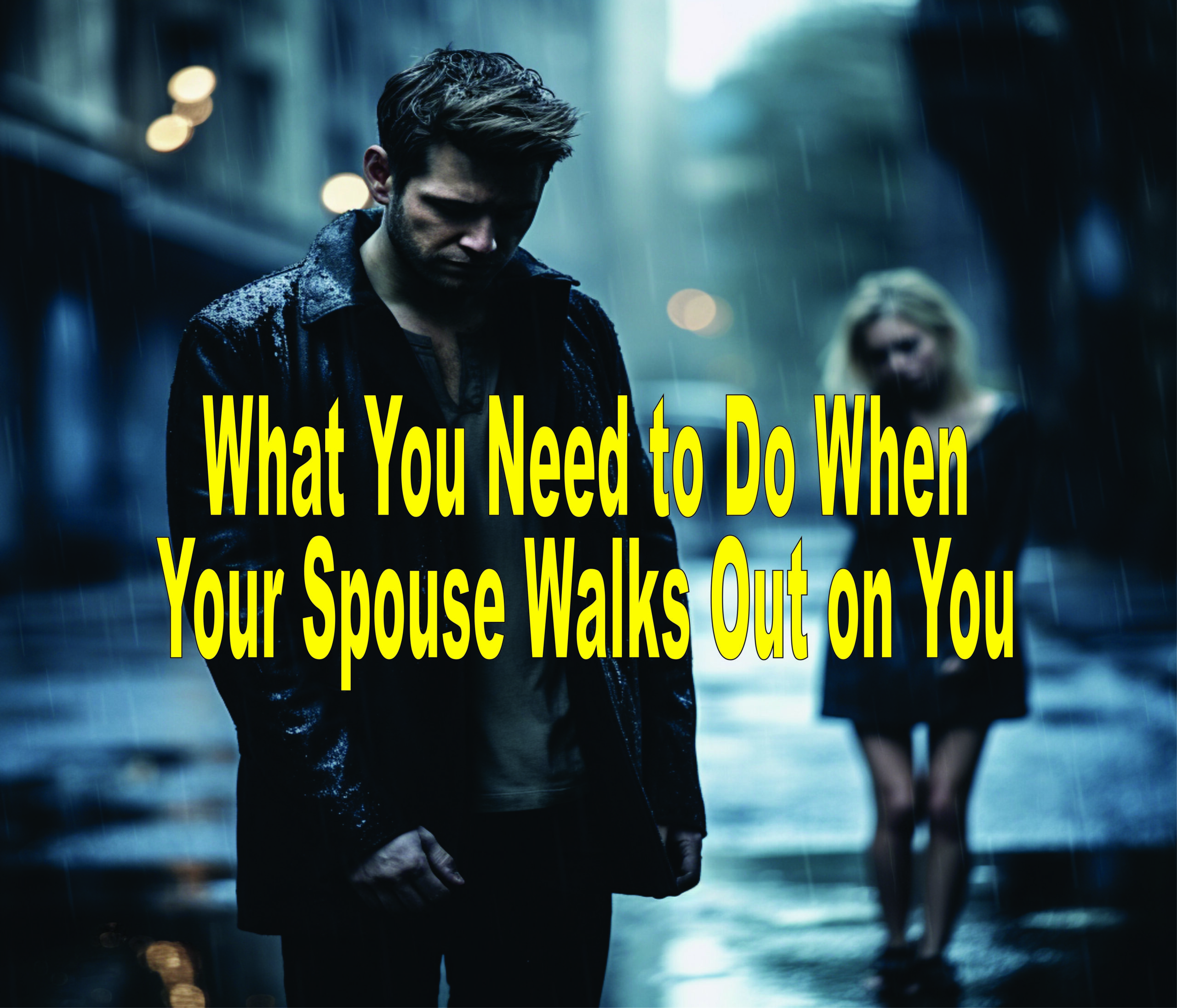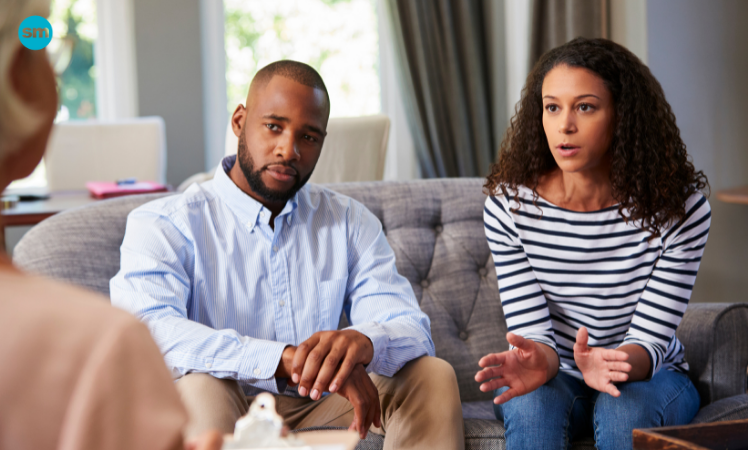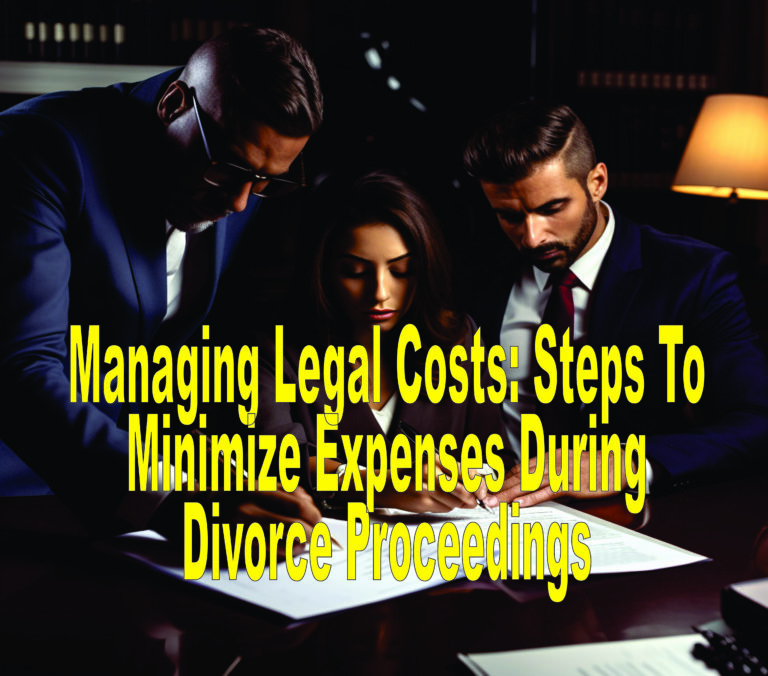What You Need to Do When Your Spouse Walks Out on You

Last Updated on January 19, 2024 by Lori Pace
Separating from someone you’ve shared life experiences with can be painful. When this happens, it’s common to experience a range of emotions, from depression and anxiety to loneliness, anger, denial, and social withdrawal.
These feelings can lead to other problems, such as trouble sleeping, loss of appetite, and mood swings. It becomes more challenging if there are disagreements over child custody, division of assets, and other matrimonial issues.
The good news is that there are ways to ensure you make decisions that will benefit you, your kids, and your future co-parenting relationship. In this guide, we’ll share some handy tips on what to do when your spouse walks out on you.
1. Learn About the Legal Process of Divorce
Maybe you and your ex will get back together after things have cooled down. Or you’ve called it quits and are already contemplating a divorce.
In either case, knowledge is power. Knowing the legal process of divorce can help you put things in order and expedite the divorce process. If you’re not a divorce attorney, you’ll need to hire one to guide you through the process.
A divorce lawyer will guide you through the legal process of divorce and ensure your interests are protected. Divorce laws can be complex and vary by state, and understanding them is crucial to making informed decisions during this trying time.
2. Talk to Your Children
Of all the things you must consider before separation, the decisions you make about your children are critical. Your kids will be greatly affected by the separation.
It’s best that you talk to them about the separation and be ready to provide some answers to them. They’ll need to know whether they’ll be able to see the other parent, after how long, and whether they’re allowed to visit them.
When you and your partner are ready to talk to your kids about the separation or divorce, here are some tips to keep in mind.
- Be honest and clear about the separation
- Develop a narrative that doesn’t put the blame on one parent
- Plan what to say in advance so both of you will be on the same side
You’ll need to be clear about whether separation will lead to divorce so you don’t build up hope that there will be reconciliation down the road.

3. Make Arrangements for the Custody of Your Children
Making arrangements for your children’s future and well-being is critical during separation. You’ll need to work out where the children will live and how much time they’ll spend with the other parent. You’ll also need to think about access arrangements, child care, birthdays, seeing in-laws, and holiday arrangements.
For this reason, shared custody arrangements are considered the best for the children’s well-being. However, in some cases, particularly where abuse or addiction is the reason for separation, it may be in the best interest to live under the full custody of one parent. Check out this guide for winning full child custody to learn more about what full custody is and how it works.
4. Review Your Assets and Finances
Part of what you’ll do after separation will involve separating your finances, particularly if you have joint accounts, and dividing assets.
If the separation leads to divorce, you’ll need to disclose all assets. Hiding assets during a divorce amounts to contempt of court and can lead to sanctions and legal fees.
Separating your assets and finances can be a lengthy process, but starting it sooner can help avoid conflicts and other problems. You can start by closing shared bank accounts and transferring the funds to personal accounts.
Next, list all your assets, even those overseas, that must be dealt with and decide what you may both want to keep. Your attorney can help you through this process and guide you on the steps to take should you both agree to settle the matters in court.

5. Prioritize Self Care
Separation is a painful process that often leaves people with complex feelings and emotions. Getting angry, feeling lonely, depressed, and confused are some of the feelings you might experience during this period.
The healing process can be lengthy, and it’s easy for one to neglect themselves. As such, prioritizing self-care is crucial.
Ensure you’re eating well, exercising, and socializing with friends. Talk to people you trust. If possible, seek the help of a counselor or professional with whom you can build a healing and trusting relationship. No matter what you feel about the separation, push yourself to face your emotions and train your mind to stay positive.
Wrapping Up
Separation and divorce are some of the most painful experiences one can face. If you’ve recently separated from your partner, you’ll want to make decisions that will work for you and ensure the well-being of your children.
A lawyer can help advise you on what the road ahead looks like and whether you should consider divorce. They can also help ensure your interests are protected in the event of a divorce.







